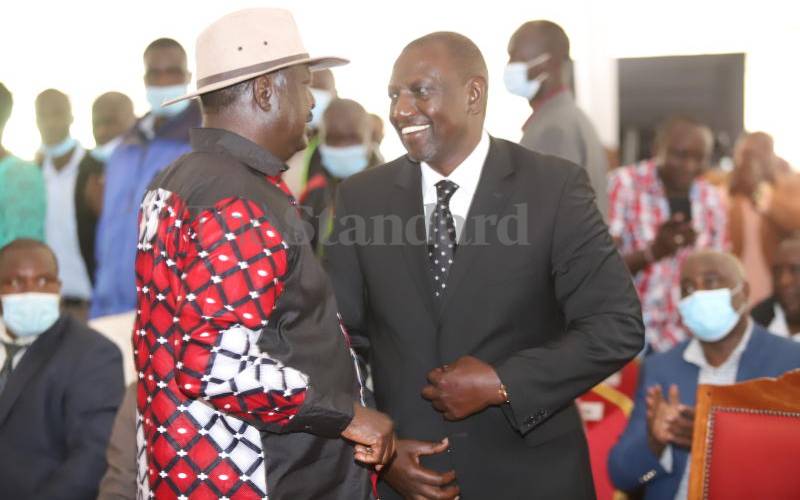×
The Standard e-Paper
Stay Informed, Even Offline

ODM leader Raila Odinga plans to turn tables on Deputy President William Ruto’s run with the hustlers’ agenda through, among others, sustained and strategic communication of his vision and lifelong quest for power.
In the plan mooted by his strategists, Raila aims to reclaim what he believes has been his main agenda throughout his political life and has been grabbed by Ruto for quick gains.